As people become more health conscious, sugar alternatives like allulose are gaining popularity. This natural sweetener has a unique profile and a list of benefits that has dieters and food enthusiasts wondering, is allulose better than sugar?
That is the question we will answer here as we look closer at allulose vs. sugar. We will explore the differences between allulose and sugar to help you decide which sweetener is best for your needs.
What Is Allulose?
Allulose is a naturally occurring sweetener found in small amounts in figs, raisins, and maple syrup. It can also be produced commercially by breaking down certain carbohydrates found in fruits.
With 70% of the sweetness of regular sugar, allulose can make delicious desserts and treats.
What Is Sugar?
Sugar, or sucrose, is a common carbohydrate derived mainly from sugarcane and sugar beets.
While it adds a sweet flavor to our favorite desserts, sugar comes with a variety of health issues, such as increased risk of:
- Diabetes
- Weight gain
- Tooth decay
- Heart disease
The Advantages of Allulose
Is allulose better than sugar? We can only answer that question by examining the qualities of this natural sweetener. Let’s dive deeper into what makes allulose unique.
Low-Calorie Content
The first advantage of allulose over sugar is its low-calorie content. Each teaspoon of allulose contains only 1.6 calories. Meanwhile, each teaspoon of sugar has 16 calories. That means sugar is ten times more caloric dense than allulose.
The low-calorie content of allulose makes it a suitable alternative for people trying to control their daily calorie intake and lose weight.
If you’re on a diet and want to satisfy your sweet tooth, choosing allulose is the way to go.
Low Glycemic Index
When discussing whether allulose is better than sugar, the most crucial factor to highlight is the low glycemic index of this natural sweetener. Allulose has a glycemic index of zero, while sugar has a glycemic index of 65.
The lower net carbs and glycemic index of allulose mean this sweetener will not cause rapid spikes and crashes in blood glucose levels as opposed to sugar.
Studies suggest that allulose can help manage blood glucose in healthy users and diabetic patients.
Sweet Taste
You can use allulose to make healthy keto snacks. The taste won’t be too different from regular sugar. Allulose mimics the taste of sugar and has 70% of its sweetness.
However, unlike many artificial sweeteners, allulose doesn’t leave a bitter aftertaste in the mouth.
Diverse Functionality

Many argue that allulose is better than sugar because you can use it in different recipes that need the typical sweetener. Just try keto dessert recipes sweetened with allulose to see what we mean!
Whether you want to bake a cake or sweeten a beverage, you can use allulose instead of sugar without compromising taste or texture.
Allulose functions well in cooking processes. It also has fantastic browning properties, allowing it to caramelize like sugar.
Digestive Tolerance
Allulose is a well-tolerated sweetener with minimal side effects. Sugar and sugar substitutes may cause gas, bloating, and diarrhea. Meanwhile, studies show that allulose in moderation is tolerable and doesn’t upset the stomach.
The digestive tolerance of allulose is due to its unique structure, which prevents the body from metabolizing it the same way it does sugar. As a result, you will experience fewer digestive issues.
Reduced Risk of Tooth Decay
When it comes to dental health, allulose is better than sugar. This sweetener doesn’t cause tooth decay because the bacteria in your mouth can’t ferment it.
Sugar feeds the oral bacteria and produces acid that wears down the enamel and makes your teeth susceptible to cavities.
This unique feature of allulose makes it the perfect sweetener for people who want to satisfy a sweet craving without harming their teeth.
Appetite Control
Allulose is not just a promising ingredient for weight management due to its low-calorie content. Studies show that this sweetener can also aid appetite control.
According to a recent study, allulose can activate particular neurons in your brain that inhibit excessive appetite. On the other hand, white sugar increases your appetite and makes you more prone to overeating.
If you’re trying to shed a few pounds, adding allulose to your diet can help you avoid overeating and stay on track.
Potential Health Benefits
Allulose is better than sugar because it offers numerous health benefits beyond its low-calorie content and zero glycemic index. Some of the science-backed benefits of allulose include:
- Fatty Liver Prevention: Unlike sugar, allulose doesn’t contribute to non-alcoholic fatty liver disease and may even promote better liver function.
- Antioxidant Properties: Allulose has been shown to reduce oxidative stress, potentially lowering the risk of chronic diseases.
- Improved Insulin Sensitivity: By enhancing insulin sensitivity, allulose may help regulate blood sugar levels and prevent type 2 diabetes.
- Better Heart Health: Allulose may also help lower triglyceride levels and protect against cardiovascular diseases.
Safe
Lastly, allulose has been deemed safe for consumption by regulatory bodies such as the FDA and WHO. Research shows that pure allulose sweetener powder is well-tolerated with minimal side effects when consumed in moderation.
On the other hand, sugar can lead to a range of health problems, from cavities to heart disease. This safety profile is another indicator that allulose is better than sugar.
Taste the Difference With GOALZ
In the battle of allulose vs. sugar, allulose is a promising player. With its minimal calorie content, low glycemic impact, and versatile applications, allulose is a healthier alternative to sugar without compromising the taste.
If you’re ready to satisfy your sweet cravings the healthy way, GOALZ has got you covered. We offer the highest-quality allulose products to help sweeten your life.
From gourmet keto chocolates to non-GMO allulose powder, our treats allow you to indulge guilt-free. Dive into the sweet world of our low-carb chocolates and keto-baking ingredients, and enjoy free shipping on orders over $39!
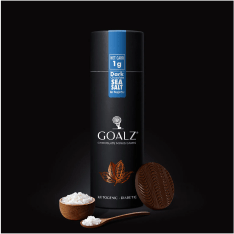
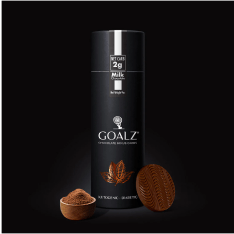


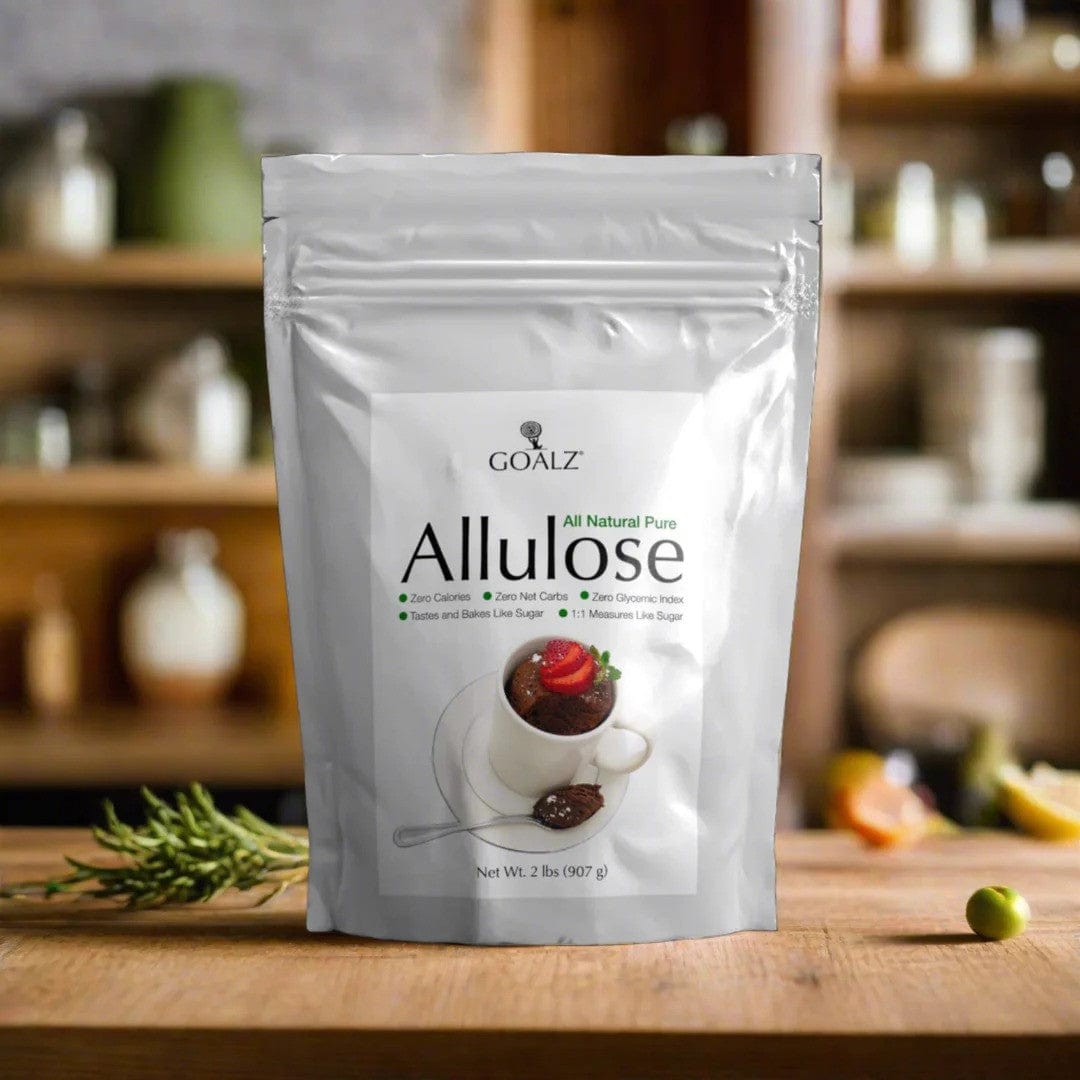





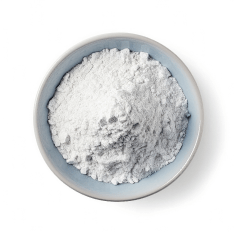

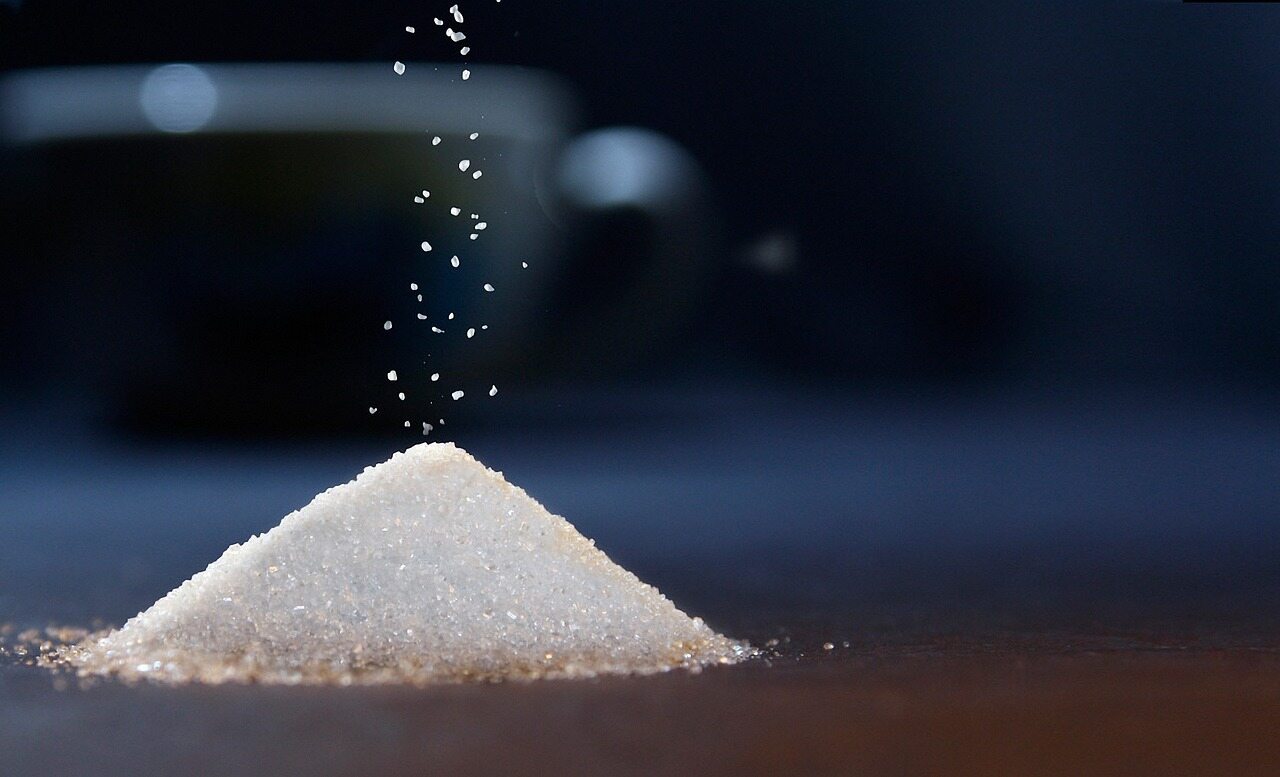


Leave a comment